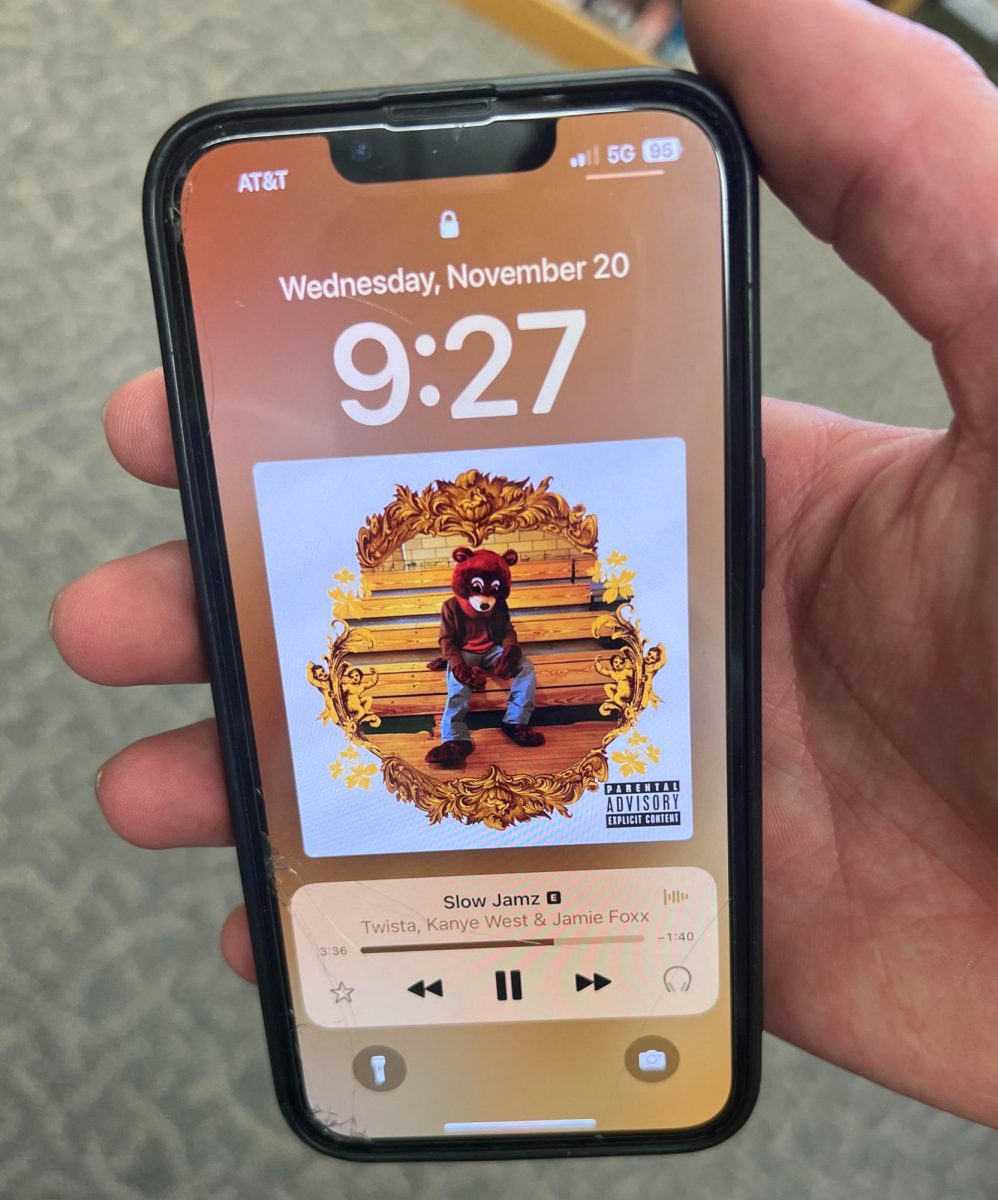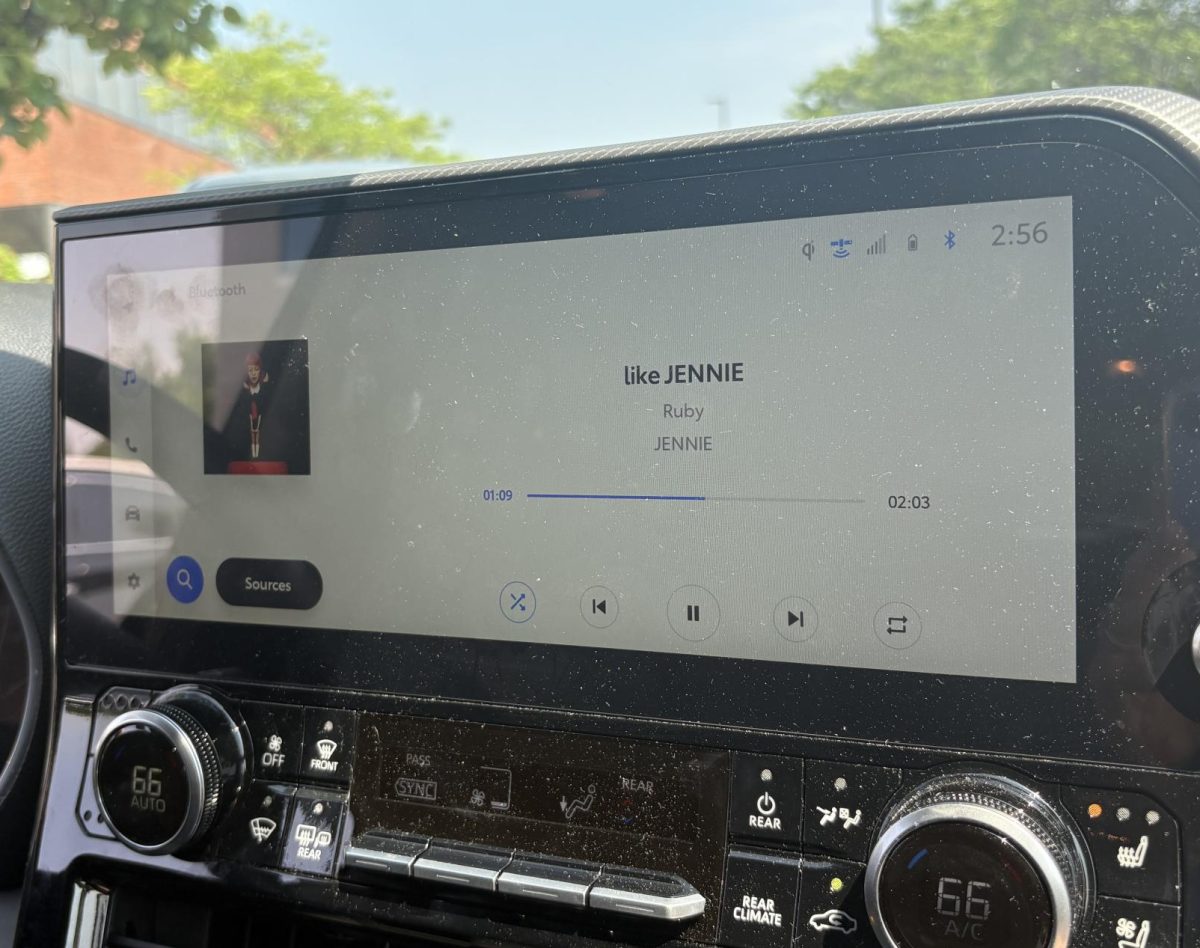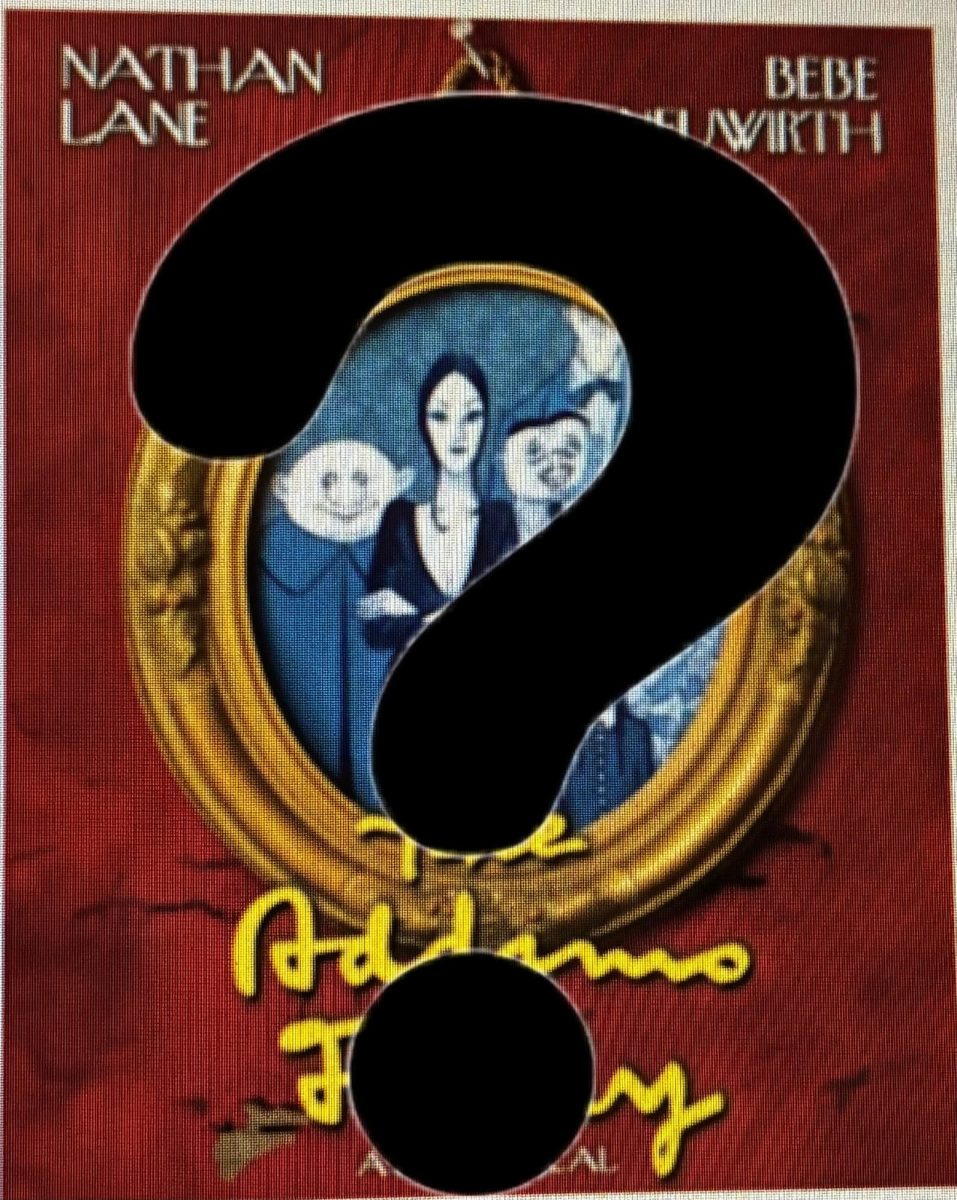As we all know nobody is perfect, especially the music artists we all love so much. The truth is that several artists have done or said things that may have the average person in jail or losing jobs. With that being said, should listeners separate the music from the artist?
Oakmont music teacher/ band director Mr. Kris DeMoura believes that you should separate the art from the artist, as the art is more important. This question has appeared many times throughout history with some of the bigger controversies from the 60s and 70s. When DeMoura spoke on this he said, “And as the 1960’s and 70’s go, there were great artists who may have done things I don’t believe in and don’t support, but still created great music, so I try to separate the fact that they may have been addicted to drugs, but it might’ve also made them more creative in their music.”
There are several others who face the controversy of separating the art and artist: Zach Byran and his cheating scandals, P Diddy and his parties, and Elvis and his relationship with Priscilla.
To further analyze this, a perfect modern example would be the artist Kanye West. Kanye, now known as Ye, was once on top of the music world, being labeled as one of the best and most influential artists of the 2000s. His numbers upon each drop were prolific and his lyrics grabbed the attention of many, which garnered lots of love. However, it would’ve been almost impossible to see the sad path that the star slowly stumbled down.
Ye first began his music career in 2004 debuting an album called “The College Dropout.” He quickly gained lots of popularity from the song “Slow Jamz” with Jamie Fox which peaked at No. 1 in the Billboard Hot 100.
From there, it was only up from the young star, every time he dropped he continued to gain the love of so many who heard his music. As his popularity grew, it seemed his music was getting better, releasing classics almost every year for 5 years straight. Throughout those years, however, Ye lost his mother in November of 2007.
At the time, it seemed it hadn’t fully impacted him. For the years after her death, it seemed everything was still going to be okay for the star while he pushed through his loss, and he would continue to make influential and passionate music for all to listen to.
Oakmont sophomore Jace Lemay shared his thoughts on Ye saying, “The production of his songs is phenomenal. The songs with Mike Dean producing with Ye are some of the best beats in my opinion. I also love the way Kanye is able to draw you in with these beats and keep things interesting.”
It wasn’t until 2013 he signed his infamous deal with Adidas which went on to make him a billionaire. The star would continue to inspire a whole new wave of music through his beats and passion until the pandemic. During the COVID-19 pandemic, Ye lost his wife in a divorce that seemingly ruined him. This quickly became the topic that everyone was talking about.
That was until the fall came; in the months of October and November, the beloved star began to slip. In the months mentioned Ye went on to, “double down on his comments on Instagram and later took to Twitter to use antisemitic rhetoric in his posts, then continued to amplify his hate speech in interviews.” According to the Billboard Hot 100. This would prove to be the beginning of the end for the next couple of years for the star, tarnishing his name and losing all of his brand deals.
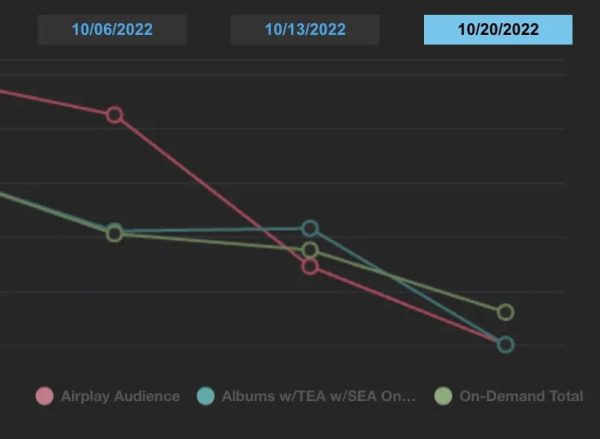
Most people thought that was it for the former star, he had lost it all it seemed: family, brand deals, and millions of dollars. He was being removed from all radio stations, earning nothing from radio play.
People then tried to “cancel” Ye for his remarks encouraging listeners to avoid his music. However, it seemed that many fans didn’t care and still loved the music he created prior. With all of this going on it created an obvious rift in parts of the music world.
His numbers decreased staggeringly during the week of the incident dropping by 23%, but many were still listening to him, separating the person he was presenting himself as and the music they fell in love with.
Fast forward to 2024, Ye dropped Vultures 1 and 2 earning some of the love lost from those who stopped listening to him after the incidents. From that, he earned many new followers and has since been back on top of many music charts even earning a No.1 slot on the Billboard Hot 100 with “Carnival”. Increasing his streams from 61 million per month the week prior to the release of Vultures 1 to 77 million per month after release.
However, with that, the philosophical question for listeners becomes: should you separate the art from the artist? Some people say you should, while others say you shouldn’t. One important factor to remember is the fact that music is not always a direct image of the person we see.
Anthony Fidler, a junior at Oakmont shared his thoughts stating, “I think fully we should separate the art from the artists, as the art that a person makes doesn’t always represent that person as a person.”
Most of us do not know these artists personally, so their music is for our interpretation. Social media is usually one of the main factors in how we see artists, and as we know, social media doesn’t always show the whole truth, so it’s important to do your own research. An article from the Rolling Stone stated, “I believe that art is made by its audience’s perception and interpretation. It is the audience that imposes the art’s meaning and merit. The creator of the art is detached from it the moment the figurative pen lid clicks shut.”
Another thing to think about might be, is the artist you’re listening to directly projecting the person who they are into their music? If not, then the person they are and their music should be separated. An artist could sing or rap about anything they want and that may not always have a direct correlation to their real personality.
Artists rarely go around telling everyone how they should listen to their music and oftentimes keep things hidden from the public making their music have a deeper meaning. In addition, listeners also can usually see the intentions of music and how artists are trying to reach an audience whether it’s about a certain story they are telling or a certain person.
Some see it as understandable for people to not want to listen to someone because that directly profits the artist. As Oakmont junior Nick Hill stated, “I can understand that people might feel guilt about listening to an artist who’s done bad things because by streaming their music you’re directly supporting them.”
The good news is that your streams don’t matter as much as you may think. For each single stream on Spotify, an artist will only earn $0.003-$0.005. Yes, those streams do add up, but you are not giving them nearly as much as you think. For every million streams artists will make $1,000-$8,000, which is a lot of money, but your single time listening to them doesn’t even really affect them.
Another reason for the separation of music and artists is that music inspires more than the artists themselves. Music made in the United States can affect and allow people in different countries to begin to chase something they never thought they would be able to do.
When hearing this music, it could be something to inspire the youth or to even just let people know they are not alone in difficult times. This music can inspire others to go out and do things they never thought they could achieve. It can also uplift those who think they are alone in their struggles, but when you then hear an artist singing about a hardship you might share, it builds a connection with that song.
Unfortunately, Ye is not the only artist who had controversy surrounding them towards the end of their career. As many know Michael Jackson created amazing music which most would agree with. Early in the young musician’s career, he was making hit after hit setting new standards in the music industry. He first went No.1 on the Billboard Hot 100 in 1972 when he was 14 years old. Jackson would then go on to seize the No.1 spot with 12 different songs being labeled by some as the “King of Pop”.
Jackson continued on this trend until the end of his career winning awards and snatching the attention of many listeners. Jackson won an impressive 13 Grammys along with 30 other major awards to top off his 30-year career in the music industry.
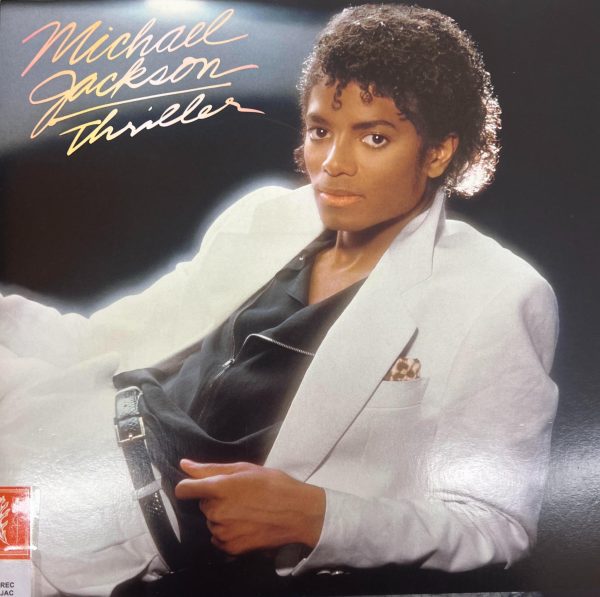
However, as the trend tends to go with many artists, controversy arose for Michael. Towards the end of his career, many allegations came out in rapid-fire fashion: Jackson was sexually abusing minors. Although all of these charges were dropped, listeners were still left with an uneasy feeling about these accusations.
Oakmont sophomore Sonny Dellasanta commented, “I honestly really enjoy MJ’s (Michael Jackson) music, and honestly don’t think he did anything wrong, I think that he was a person who was hurt as a kid and I don’t believe he would do that.”
Dellasanta mentioned a valid point referring to the allegations that were first brought about him being sexually abused, although there is no way to prove that if something had occurred. The question arises, why would he ever do something like that to anyone else?
Then it was found in 2004, that Jackson had reportedly paid off some of his accusers, while still denying that he ever did anything wrong. NPR music even went on to write an article on these allegations writing, “She claims that their mother, Katherine Jackson, has shown her checks that Michael allegedly made out to the families of some very young boys, at least one allegedly as young as nine years old.”
It is important to note that none of these allegations were ever proven; as far as legally, Jackson was never guilty of such things. Whether true or not, Jackson’s reputation was tarnished. He was ridiculed by much of the public, but his music still left a lasting impression.
DeMoura points out a fact to keep in mind saying, “Though they were allegations he paid people off – which makes me believe he was guilty of those charges – the artist behind that created great music beforehand.”
While perspectives may not always align, it is important to see both sides of the equation, when the question of separating the art and artist arises.



